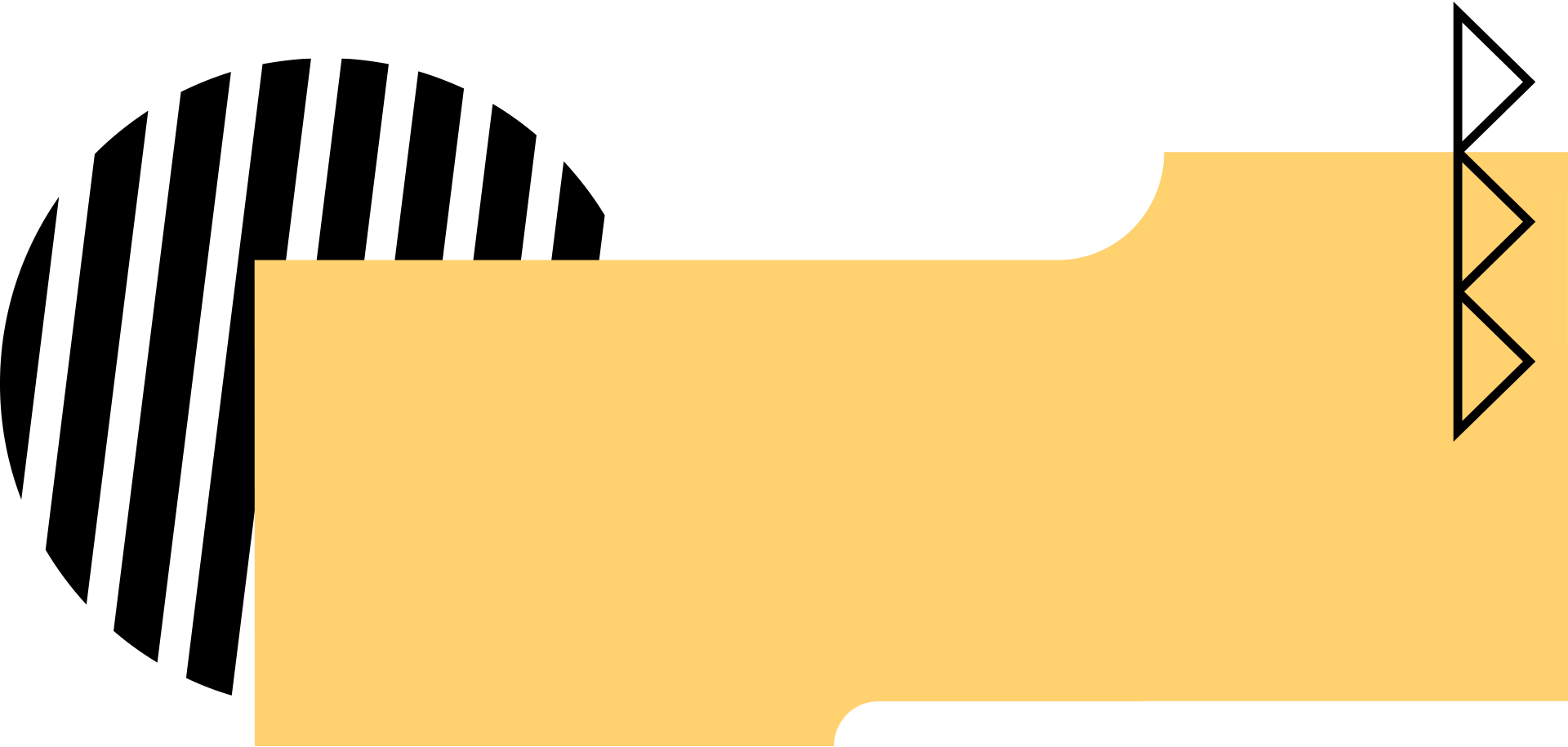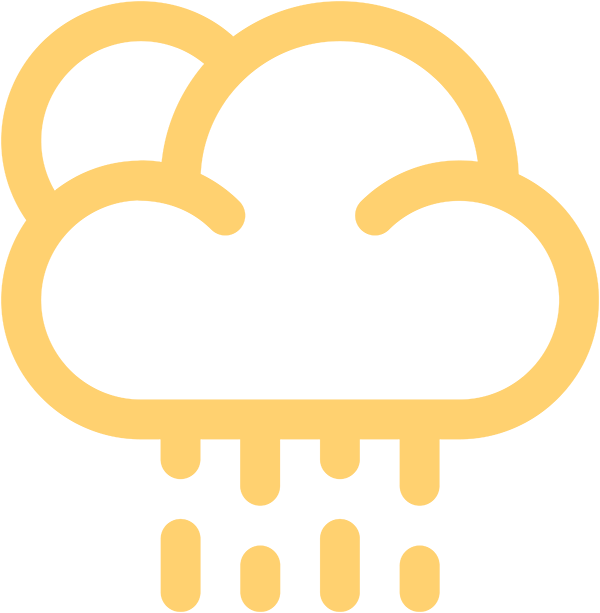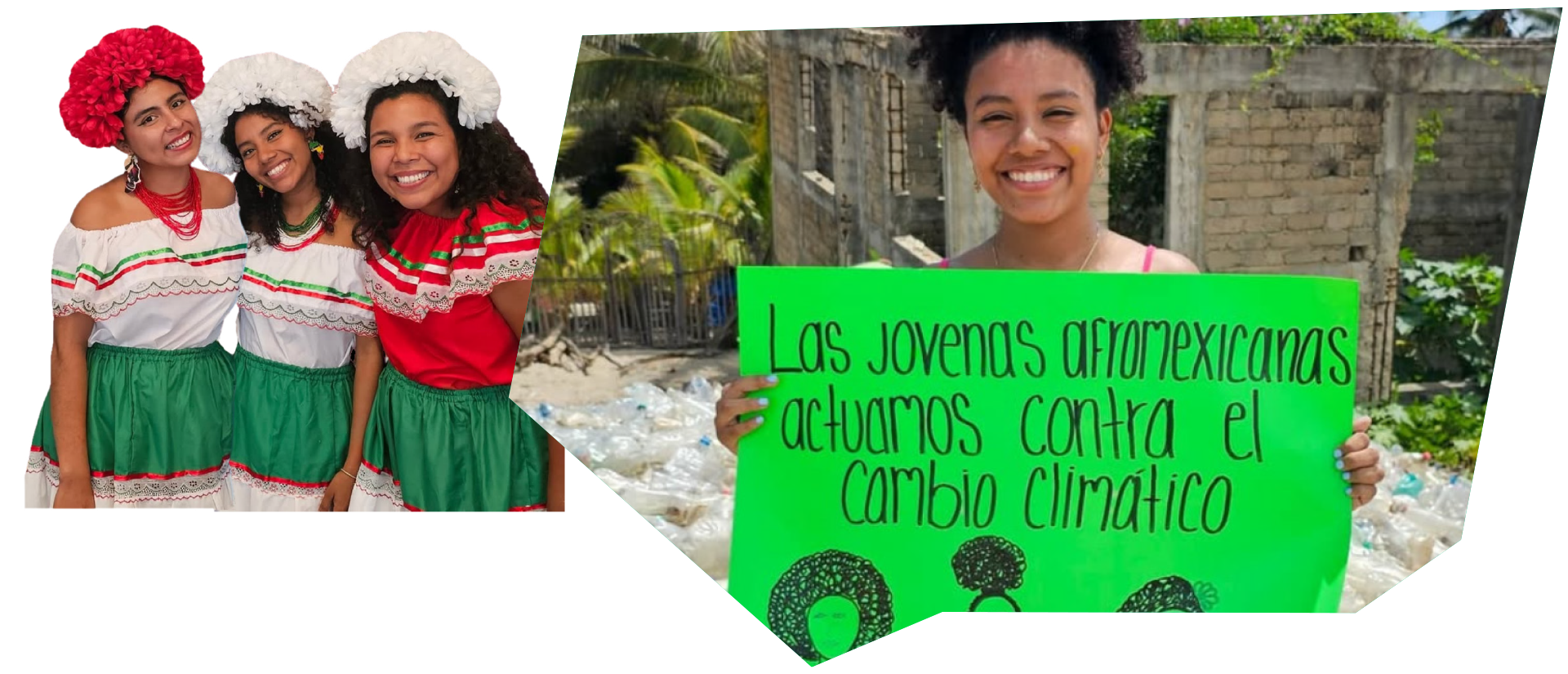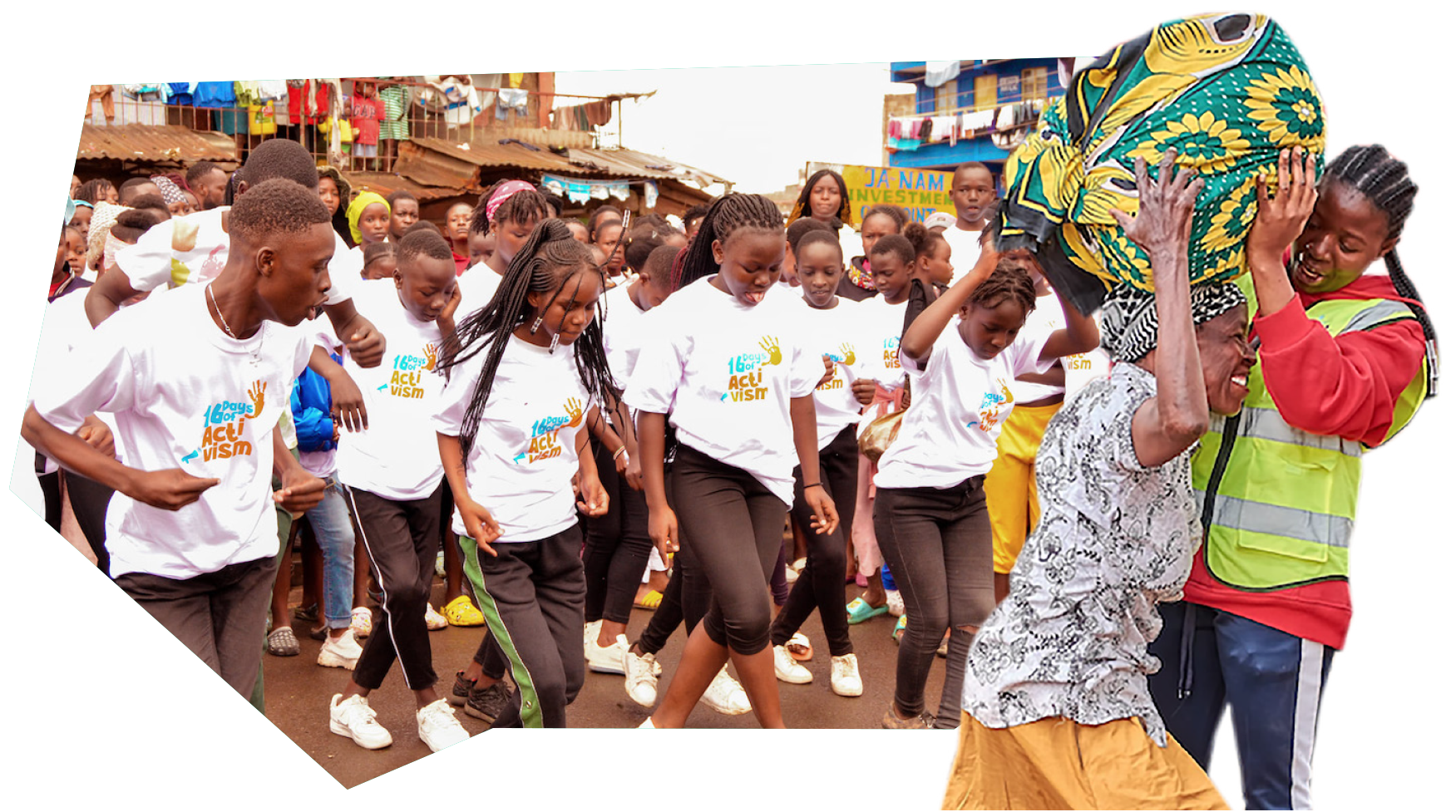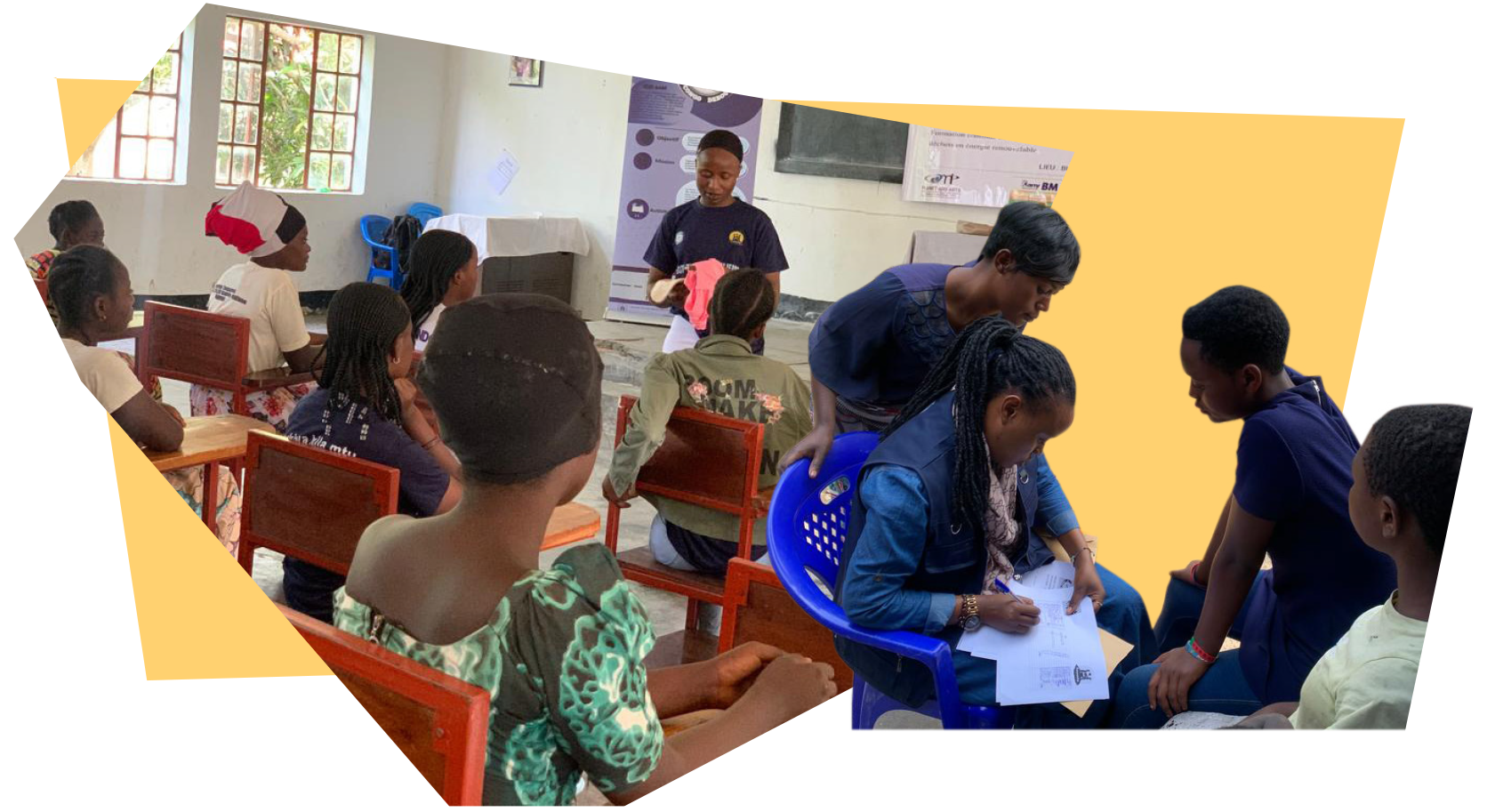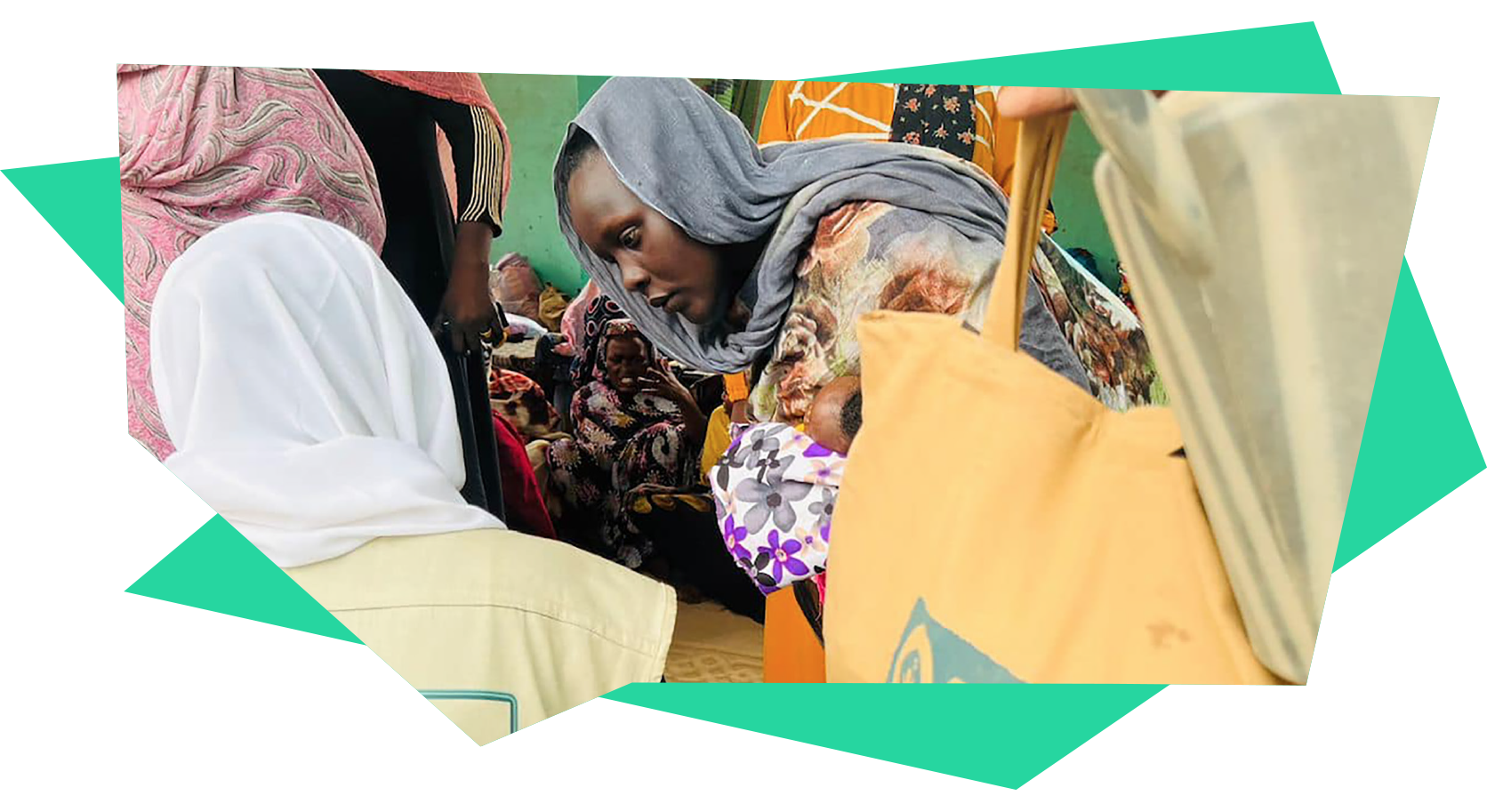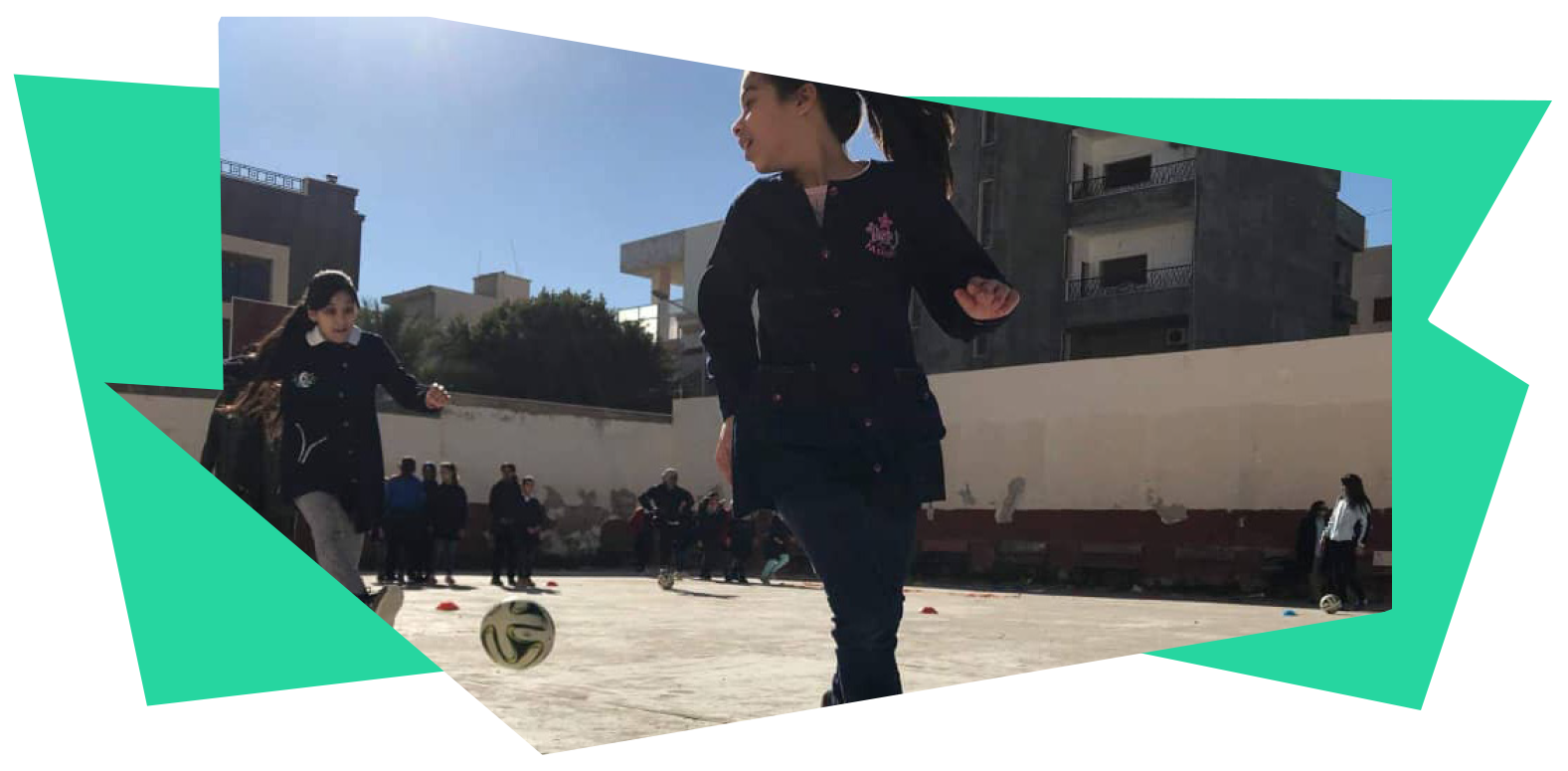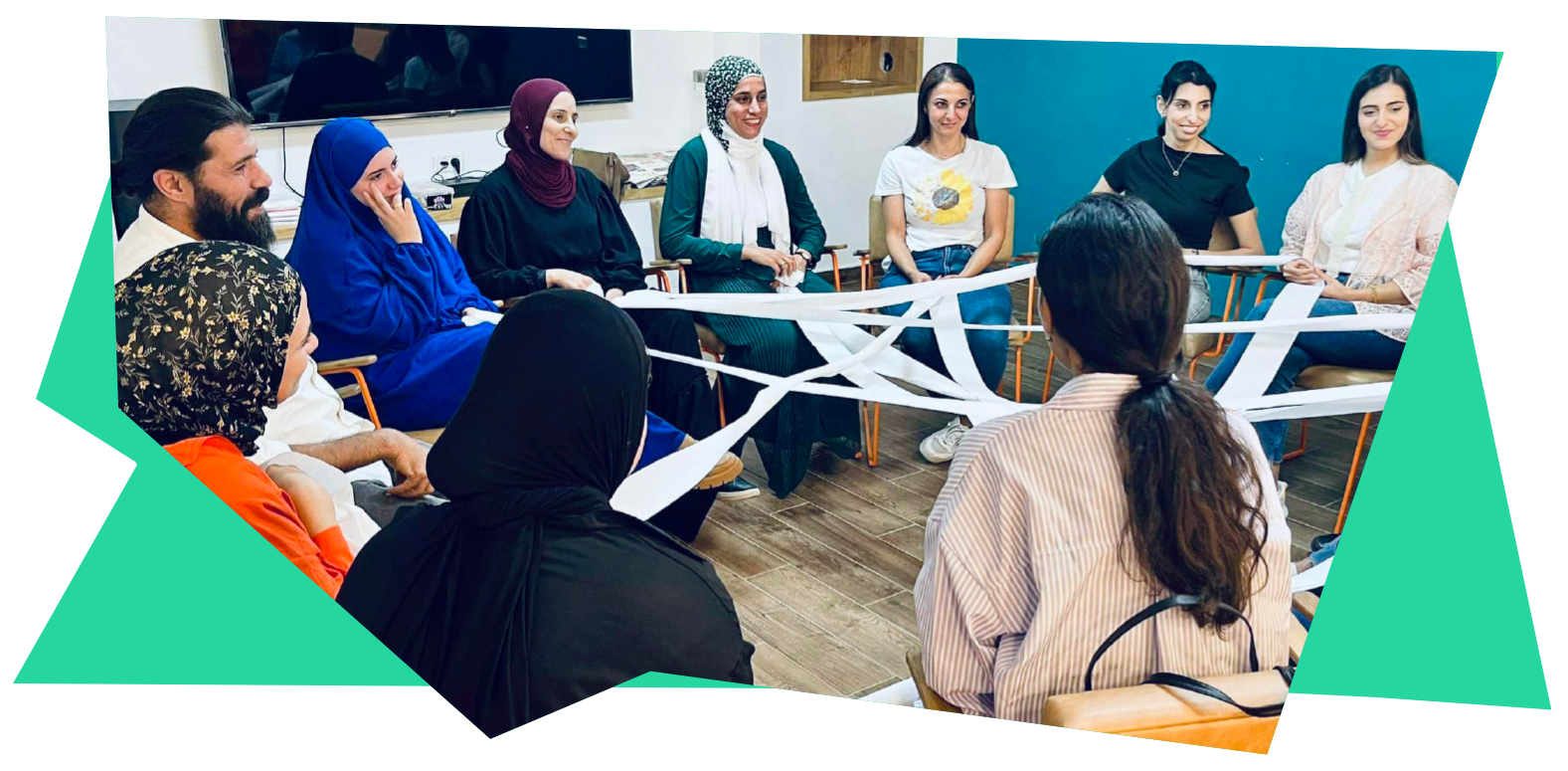
10 CASE STUDIES:
Frontline crisis and humanitarian response led by girls and young feminists
Below we share ten case studies from across the world in a range of humanitarian, political and environmental crises and disasters, spotlighting 10 partners from the last five years.
Rapid response in sudden onset crises: Climate and environment
Mexico, Pakistan , Libya
Mobilising in political
crisis to hold leaders
to account
Kenya, Georgia
Deep work in
protracted
humanitarian crises
Democractic Republic of Congo, Sudan, Myanmar, Palestine, Yemen
Sudden Onset Crises: Climate and Environmental Disasters
Mexico, Hurricanes of 2024
Types of crisis: Environmental crisis
When two devastating hurricanes hit Mexico in 2024, impacting thousands of people, girls and young feminist collectives mobilised to respond to the immediate needs of their communities while nurturing long-term resilience. The hurricanes destroyed Afro-Mexican neighbourhoods in Acapulco, leaving hundreds of families facing displacement, heightened financial insecurity, polluted water, and the loss of livelihoods. The government did little to adequately support the needs of those most affected.
The Global Resilience Fund was able to support long-term partners to respond to the hurricanes, providing direct support to the families and communities they were already part of.
Partner Spotlight: Afrocaracolas
Afrocaracolas is a young feminist-led group in Acapulco, which mobilised to provide food, health brigades, and financial support for displaced families, and safe spaces for Afro-Mexican women and girls. Over 300 families were able to receive vital care and aid to navigate this crisis with more dignity and support.
The government has done little to support communities that have suffered multiple climate catastrophes. Our collectives do this work from the heart, supporting affected communities with both immediate responses of supplies and long-term essential physical and mental health resources.
Children became ill due to water contamination and the destruction caused by the hurricane. In response, we implemented free health brigades, providing medicine and psychological support sessions. We also arranged for financial support and donations for those who lost their homes.”
—Daniela, Afrocaracolas.
Photos above from grantee partner Afrocaracolas.
Pakistan
Types of crisis: Environmental crisis
Between early July and August 2022, Pakistan faced a series of unprecedented and severe monsoon rainfall surges that led to extensive landslides along the Indus River basin. One-third of the country was flooded, leaving more than 30 million people without homes and causing over 1000 fatalities. The disaster also resulted in economic losses and damage amounting to over USD 30 billion, as per the World Bank. The effects of the flooding made it even more difficult for women to access menstrual resources in the tribal areas due to the roads being washed away by the landslides. Girls faced especially difficult challenges in accessing hygiene and menstrual kits due to a lack of resources and a lack of awareness about dignity kits and sanitary pads. Many of them resorted to using old clothes and lacked knowledge of how to clean them, leading to high rates of infections caused by the unhygienic materials.
The Global Resilience Fund responded by providing flexible funding and supplemental support to build the groups’ organisational capacity and programming.
Partner Spotlight: Marshal Girls Foundation
Marshal Girls Foundation was founded by eight young feminists in 2019. Witnessing the impact of the floods on girls and women in the area, the group decided to respond. They initiated training programs on menstrual hygiene to provide education and to equip women with essential knowledge and resources for maintaining their health and dignity. Addressing this critical need became a central focus of their work. Recognising the urgent need for assistance, the organisation swiftly mobilised its resources to provide relief to those affected. By distributing care packages and almost 200 hygiene kits, MGF not only addressed immediate needs but also played a crucial role in preventing the spread of infections and ensuring the well-being of pregnant women and infants.
The most important part was that support from Purposeful has given us the sense of autonomy, being heard. So from that time, we have been working hard for the people in the tribal areas.”
—Sara, a group member
The group’s interventions have led to tangible improvements in the communities in which they work, including a reduction in child marriages, increased school attendance among girls, and a decline in exploitative relationships. By advocating for policy changes and raising awareness of critical issues such as domestic violence and honour killings, MGF seeks to create lasting change and ensure a brighter future for generations to come.
Mobilising in moments of political crises to hold leaders to account
Georgia
Types of crisis: Social and political crisis.
Following the announcement of preliminary results from the 26 October 2024 parliamentary election, protests erupted in Georgia on 28 October. The ruling Georgian Dream party was declared to have won a majority of parliamentary seats, prompting demonstrators to allege election fraud and demand a recount and new elections. Subsequent months saw continued protests and legal challenges against the election results. Police and groups affiliated with the ruling party engaged in widespread violence and torture targeting protesters and journalists. The Public Defender of Georgia concluded that the nature and severity of injuries intentionally inflicted upon protesters amounted to torture. The crackdown on civil liberties has included a package of anti-queer rights laws and practices which has prevented queer individuals from accessing healthcare and other essential services in the country.
Our members are all active in the protests and can’t feel their voices anymore from screaming. Mental health was always bad but never this bad. We feel like our bodies are on the verge of collapsing. Protestors have lost their jobs and so our members are poor now. This is in addition to biphobic or transphobic experiences in the country. A lot of queer activists left, but we are all still here. Emergency funding is so important as it enables us to relocate quickly. We needed stuff at the protests: raincoats, masks, food, medicine, etc.”
—Georgian activist
The Global Resilience Fund responded by supporting local groups with unrestricted funding and accompaniment as they navigated this political crisis and threats to their safety and well-being that arose.
Partner Spotlight: Lesbian Resistance
Lesbian Resistance is a queer feminist group uniting queer feminist fighters, healers and dreamers from different parts of Georgia. With flexible funding, the group focused their efforts on physical and psychological safety measures. This included providing access to safe shelter, basic needs for members of the groups, and resources for collective care, such as access to professional psychological support.
Sometimes survival is a success. What does survival look like? We rented a house when the protests were ongoing and it was crucial for us to have a shelter. Police brutality made it feel like a war, so having a warm house and food is very important. We had to change locations for security, but it was always walking distance from the protests. The other thing was supporting our members with basic needs across the country.”
—Georgian activist
Kenya
Types of crisis: Social and financial crisis
The Total Shutdown movement in Kenya began in 2019 as a response to escalating cases of femicide and was initiated by young feminist activists, aged 19-21, inspired by similar organising efforts in South Africa. The movement used digital platforms to raise awareness and mobilise protests, demanding safety for women in both private and public spaces and creating a cross-continental conversation. In January 2024, renewed femicide cases re-ignited their activism, leading them to be even more organised, leveraging stronger grassroots ties and social media to mobilise towns and cities to take to the streets. Their actions included broader awareness campaigns and actionable demands, with greater collaboration across diverse groups. Despite online backlash, activists are continuing to advocate for unmet demands, including declaring femicide a national emergency, mandating presidential accountability and government action, incorporating femicide into legal frameworks, establishing survivor-centred approaches and emphasising the need for ongoing funding and grassroots inclusion.
Photos above from grantee partners Inua Kike from Kenya.
Partner Spotlight: Feminists in Kenya
Feminists in Kenya (FIK) is composed of feminist and LGBTQIA+ activists dedicated to changing the narrative and bringing African women’s experiences to the forefront. A vibrant, diverse and influential movement, FIK works to create a world free from all forms of violence, both structural and interpersonal, and strives for a society where structurally excluded communities can fully occupy public and private spaces without threats to their autonomy. FIK has been instrumental in starting the Total Shutdown Marches and supporting women and grassroots collectives during the #RejectFinanceBill2024 protests. The group supported frontline activists by facilitating transportation to protest sites and offering resources to ensure their safety and participation, as well as countering misogynistic narratives within the protest movement with feminist-driven messaging. The group also secured legal representation for activists.
We are writers. We are lawyers. We are students. We are learners. We are feminists. At FIK, our political organising is focused on dismantling oppressive systems and creating alternative models that promote justice, equality, and agency for all. As young people, we build community through feminist political education and joyful resistance. Our movements respond to the dynamic and ever-changing challenges we face, from digital rights violations to bodily autonomy threats to the devastating wave of femicide plaguing Kenya, which led us to start the #TotalShutDownKE march.”
FIK was nominated for the 2019 Upinde Awards (Young Human Rights Defender Category), convened annually by the National Gay and Lesbian Commission for Human Rights in partnership with the Canadian High Commission for their powerful feminist advocacy work in Kenya.
Protracted humanitarian crises
Funding in different types of crisis contexts for the past five years has taught us that a long-term approach is needed, alongside the agility of rapid resourcing. Below are three examples where we have successfully implemented this dual strategy—providing immediate funding while also developing plans for sustained long-term support.
Democratic Republic of Congo
Types of crisis: social and political crisis, armed conflict
In the Democratic Republic of Congo, a decades-long crisis has led to mass displacement and violence. The situation has worsened since January 2025, when Rwanda supported the Congolese rebel group, M23, to launch a military operation in the regional capital of Goma. Nearly 3000 people were killed during the fighting, and in the aftermath, girls and young women have been particularly impacted by the region’s instability. The crisis has led to increased gender based violence and exploitation. Girls and young women who have tried to resist and conduct documentation efforts have been the targets of further violence.
The situation is dire. Women fear for their safety daily, and our efforts are aimed at protecting them amidst ongoing instability.”
—Deborah, a young feminist activist from Initiative Congo Debout
The Global Resilience Fund has strategised how to best support girls and young women in the DRC. We have funded 7 groups consistently since 2023, channeling core and flexible funding and core accompaniment. In the coming years, we will deepen our work in the DRC and seek to coordinate with other funders for greater impact, and document the impact of the crisis on girls and young women. In 2025, we co-hosted an emergency funder briefing with African Women Development Fund and the Urgent Action Fund AFRICA to ensure that activists have a direct platform to share their demands and define what solidarity looks like with funders.
Photos above from grantee partners Initiative Congo Debout from DRC.
Partner Spotlight: Kongo Mwianda
Kongo Mwianda is a collective led entirely by women under 25, which focuses on reproductive health education and works to support activists targeted in the conflict. Through training, they have provided 20 girl activists with information on their rights and education around how to protect themselves physically and digitally. 15,000 more were reached through digital campaigns, and dignity kits were provided to 100 displaced girls.
Groups supported by the Global Resilience Fund have been agile in the face of a constantly shifting political context, and they have adapted their priorities according to the needs of their communities. But they are often unable to meet the demands for their services. Due to the recent dissolution of USAID funds and organisations withdrawing due to the security situation, funding has dried up.
Sudan
Types of crisis: Political crisis, social crisis and civil unrest
Two years have passed since this phase of the deadly war in Sudan erupted, during which the people of Sudan have experienced ethnic cleansing, genocide, sexual violence as a weapon of war, and acute hunger on a catastrophic scale. Nearly 13 million people have been displaced. Women and girls, especially those in shelters, are currently facing heightened vulnerability, with basic needs hard to come by. With domestic violence cases on the rise, including rape within shelters, victims often face further abuse from authorities. The feminist movement in Sudan has undergone significant changes, with young women activists increasingly targeted. Facing unimaginable terror, women in some parts of Sudan, have organised mass suicide to avoid being raped. All systems have collapsed. Sudan has been plunged into the worst humanitarian crisis the world has ever known, and yet remains largely invisible in mainstream media - a forgotten crisis. As the violence, displacement, and starvation continue, humanitarian support for Sudan has dropped by over 80% due to significant cuts from aid donors like USAID.
It was young women who led the Sudanese revolution in 2019 that called for full civilian rule and deposed its long-held dictatorship. It is girls and young feminists again, in the full atrocity of this moment, who are leading on the frontlines, who in the lack of formalised social security and safety, are constructing their own networks of care.
Working closely with our young women advisors in Sudan, we have funded 20 young women-led groups in the last 18 months. This includes core flexible funding to 10 young feminist groups and additional funding for them and additional groups during the floods. We received no dedicated funding for Sudan but were able to draw on reserves to fund this response. Through local advisors, communicating primarily through WhatsApp, we learnt about how Sudanese young feminist groups and collectives are facilitating informal safe spaces, building rapid psychosocial support networks, and providing direct humanitarian aid for each other of food, water and sanitation. This has informed the type of funding and support we offer.
We have focused our work on funding deeply, renewing groups for multiple years and, being in close contact regularly with groups, offering critical accompaniment and support to document their experiences. In addition to providing flexible funding for their work, we have offered learning calls to better understand the work and create spaces of collective care.
The best way to tackle issues is not for the people, but by the people, as no one is fully aware and knowledgeable of the situation on the ground like the people most affected by it.”
—Aya, a Sudanese young feminist activist, Global Resilience Fund advisor
Photo above from grantee partners Kassala Women Platform.
Partner spotlight: An anonymous group in Sudan
An anonymous group in Sudan convened several political education spaces on democracy, women’s political participation and grassroots movement building including: a three-day workshop on democratic concepts and women’s political participation and a workshop on strengthening local women’s leadership (traditional and modern structures for building governance systems). The group also conducted meetings with representatives from Sudanese political parties to discuss women’s participation and intergenerational exchanges between women in the community. In addition to organising, advocacy and education, the group has been providing community-level maternal and menstrual health information and direct services. They have distributed dignity kits in refugee shelters and provided financial coverage for caesarean delivery cases and aftercare for new mothers. They also delivered a 4-day feminist seminar for young women to learn more about reproductive and sexual rights and their political participation. Young feminists know how intertwined political participation is with social and economic rights because they have experienced the violation of these rights and have seen the fragility of them in times of crisis, particularly when those crises are multiple, intersecting and ever-evolving.
Myanmar
Types of crisis: Political and environmental crisis
Myanmar has experienced over five decades of military dictatorship, starting in 1948, which has led to a severe crisis of human rights violations, politically linked violence, and widespread unrest. In seizing power and severely restricting democratic functions, the military regime has exacerbated the crisis, which particularly impacts young girls and women in Myanmar through increases in gender-based violence, restricted access to essential healthcare services and aid, and forced mass migration and displacement. As migration increases, politically displaced people living in border areas such as the town of Mae Sot in Thailand experience increased police violence, widespread xenophobia, and GBV, while lacking legal representation and support. Climate disasters, such as the recent large-scale earthquake and its aftershocks, have further exacerbated the situation.
GRF provides a combination of rapid response funding and accompaniment to six groups in Myanmar or in surrounding border areas, taking a long-term approach to funding support. Given the challenging political context, all groups must remain confidential. Despite patriarchal norms in Burmese culture emphasising the role of the man as the leader of the household, the groups focus on providing access, resources, and empowerment to young girls and women who are often left behind as the heads of multi-generational households in Myanmar, due to forced conscription of men into the military army.
Partner Spotlight: An anonymous youth organisation
In one Thai border town, an anonymous youth organisation is running a community library that provides clean drinking water, menstrual hygiene products, a stable Internet connection, language classes, and educational resources to the growing migrant population. More significantly, the space offers a secure physical container and community resources during a time of extended displacement for many who have fled the country due to the threat of persecution, violence, and forced conscription.
Yemen
Types of crisis: Social crisis, political conflict, protracted humanitarian emergency
For over nine years, Yemen has endured one of the world’s most devastating conflicts, leaving over 80% of the population in urgent need of aid. Amid displacement, economic collapse, and deep gender inequality, girls and young women are disproportionately impacted yet remain largely excluded from humanitarian decision-making and peacebuilding processes.
Yemen was already one of the most challenging environments for women and girls due to deeply entrenched patriarchal norms, which restrict women’s and girls’ access to education, financial resources, healthcare, leadership positions, and livelihoods.
However, while formal systems have failed them, girls’ and young women’s groups are stepping up with bold vision and grassroots action.
Partner Spotlight: The Wa’ad Network
Operating in one of the world’s most restrictive environments for women and girls, The Wa’ad Network is driving transformation. This girl- and youth-led organisation works across multiple regions in Yemen to build leadership, cultivate youth power, and create safe, affirming spaces for girls to come together to heal and rebuild for the better. Through mediation training, peacebuilding efforts, safe spaces, and creative advocacy, Wa’ad is breaking barriers to participation, ensuring that girls and young women are not just recipients of aid but architects of their future.
Our work is about reclaiming space—through art, media, and organising—so that girls and young women lead the change their communities urgently need.”
With support from the Global Resilience Fund, Wa’ad has:
Provided leadership and mediation training to foster girls’ and young women’s roles in peacebuilding and recovery
Created safe spaces for girls to express their aspirations, build community, and develop their leadership skills
Fostered a strong sense of belonging and shared purpose through dialogue and storytelling
Strengthened girls’ leadership visibility through creative tools like art and media advocacy, and opened doors for them to engage with local decision-makers
In Taiz, they hosted a Girls and Art Exhibition where participants used visual art to raise awareness about girls’ rights and community issues. Through a training course, Using Art as an Advocacy Tool, girls explored their own narratives to strengthen their voice and agency. They developed the Sawa Shababa platform, which facilitates media advocacy projects led by young women with disabilities, producing more than 30 media products and holding key meetings with local decision-makers to discuss the status of women with disabilities’ participation.
By cultivating connection, expression, and shared leadership, Wa’ad is nurturing a thriving ecosystem of care, resistance, and transformation in the face of profound crisis.
Their work reminds us that building power with the most vulnerable is vital for peacebuilding and humanitarian response.
Libya
In September 2023, the deadly storm Daniel caused extreme flooding in Libya, which killed and displaced thousands of people. Geographically, Libya is situated in a region grappling with the dual pressures of post-war recovery and acute climate change impacts. The security situation remains fragile, with sporadic violence and unrest, making it difficult for civil society organisations to operate effectively. Additionally, Libya faces harsh climate conditions, including extreme heat and increasing instances of flooding. These environmental challenges exacerbate the already precarious living conditions, particularly impacting vulnerable populations, including women and children.
The response to the floods has seen both national and international efforts to provide aid, but the distribution of resources has been marred by a lack of transparency and efficiency. This has highlighted the government’s inexperience and unpreparedness, raising concerns about potential corruption and the long-term impact of reconstruction projects. Mental health support initiatives, while focused on children and public activities, have also faced challenges in terms of accessibility and effectiveness for those most in need. GRF worked closely with our advisors and existing partners to fund six young activists to lead groups that mobilised to provide emergency support, including food and shelter.
Partner Spotlight: HERA
HERA is dedicated to working alongside women and girls so they can recognise their physical strength. By realising their capabilities, girls and women can challenge societal stereotypes that portray them as weak or inferior. HERA also strives to create a safe space for open discussions. Their organisation works with women and girls of all ages, beginning with training camps that include focus group discussions on human and women’s rights, alongside opportunities for physical training and play. HERA also engages with schools, organising activities for young girls at the elementary and junior high school levels. Notably, they advocate for the reinstatement of physical education classes for high school students, which have been cancelled beyond the first year. To address this, HERA holds sports tournaments, including soccer, volleyball, and basketball, for girls from elementary to high school. Overall, HERA’s initiatives aim to benefit girls and women of all ages, fostering empowerment through physical activity and education.
Photo from grantee partners HERA from Libya.
Palestine
In Palestine, the ongoing genocidal war has created a catastrophic humanitarian crisis. Girls and young feminists, often navigating profound trauma and loss, are not only surviving but organising transformative crisis responses rooted in care, resilience, and collective healing.
Young feminist groups supported by the Global Resilience Fund are among those on the frontlines of this crisis. From Gaza to Bethlehem, they are creating spaces of safety, dignity, and healing.
Photo from grantee partners Psychology Spa from Palestine.
Partner Spotlight: Psychology Spa
Psychology Spa organised to provide free essential mental health and psychological support spaces for women, girls, and children in their community, working towards collective healing while nurturing resilience and transformation.
By supporting grassroots mental health projects, we can collectively foster resilience, empowerment, and lasting social change across our communities, ensuring mental health is integral to justice and well-being in the region.”
— Member from Psychology Spa
The Global Resilience Fund is working to deepen our support to girls and young women responding to the deep humanitarian crisis in Palestine. We are actively coordinating with partners to ensure that resources reach those most impacted amid mass displacement, bombardment, and grief.
We will continue to amplify their voices, document their experiences, advocate for sustained, feminist humanitarian funding, and provide flexible support for young feminist-led efforts that prioritise collective care, even in the most challenging conditions.
Photos this page from grantee partners: Vila Resistencia from Brazil, and Feminists in Kenya

